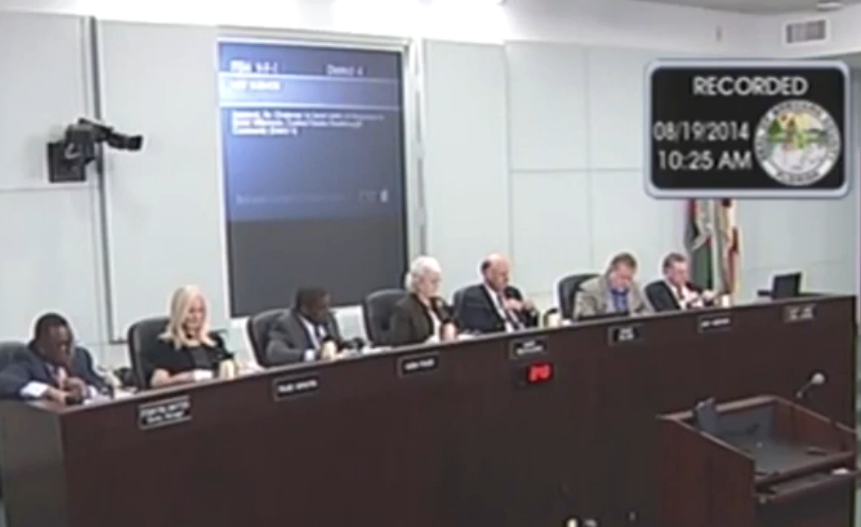 BREVARD COUNTY, Fla. — A federal judge appointed to the bench by then-President Bill Clinton has ruled that Brevard County, Florida’s board of commissioners can’t disallow atheists from delivering invocations at public commission meetings.
BREVARD COUNTY, Fla. — A federal judge appointed to the bench by then-President Bill Clinton has ruled that Brevard County, Florida’s board of commissioners can’t disallow atheists from delivering invocations at public commission meetings.
“By opening up its invocation practice to volunteer citizens but requiring that those citizens believe in a ‘higher power’ before they will be permitted to solemnize a board meeting, the County is violating the freedom of religious belief and conscience guaranteed by the Free Exercise Clause,” wrote U.S. District Judge John Antoon II.
He said that the county’s practice of only allowing religious residents to deliver the prayer is an “instrument” of division and is unconstitutional.
“The County defines rights and opportunities of its citizens to participate in the ceremonial pre-meeting invocation during the county board’s regular meetings based on the citizens’ religious beliefs,” Antoon wrote. “[T]he county’s policy and practice violate the First and Fourteenth Amendments to the United States Constitution and … the Florida Constitution.”
As previously reported, Brevard County’s board of commissioners voted unanimously in 2014 to deny a request from David Williamson of the Central Florida Freethought Community after he sent correspondence to Chairman Mary Bolin Lewis asking that his group be added to the county’s invocation list.
The County replied that Williamson’s group did not qualify for the invocation because it is defined as a “prayer presented by members of [the] faith community.”
“The prayer is delivered during the ceremonial portion of the county’s meeting, and typically invokes guidance for the County Commission from the highest spiritual authority, a higher authority which a substantial body of Brevard constituents believe to exist,” the response from the commissioners and the county attorney outlined.
“The invocation is also meant to lend gravity to the occasion, to reflect values long part of the county’s heritage, and to acknowledge the place religion holds in the lives of many private citizens in Brevard County.”
The County, still seeking to accommodate Williamson somehow, instead suggested that the Freethought group speak during the public comment period. The board voted unanimously in favor of formalizing the matter into a policy, which angered atheists who opined that the rule was discriminatory.
“The groups are adamant that this is discrimination, and it relegates non-believers to second class citizens,” Williamson told reporters. “To deny anyone the right to participate as equal members of the community that portion of the meeting is abhorrent.”
He therefore sued the board, and on Friday, Antoon ruled in Williamson’s favor. Antoon said that the situation did not align with the prayer practice considered by the U.S. Supreme Court in Greece v. Galloway.
“What happens in Brevard County is a far cry from what happens in the town of Greece. Brevard County does not allow everyone to give an invocation,” he wrote. “Instead, it limits the prayer opportunity to those it ‘deems capable’ of doing so–based on the beliefs of the would-be prayer giver.”
Brevard County Attorney Scott Knox told Florida Today that he will recommend that the commissioners appeal the decision.
“We don’t agree with the judge. We don’t agree with the reasoning at all,” he said. “I’m highly recommending that they appeal it, because I think the judge was dead wrong.”
Become a Christian News Network Supporter...


